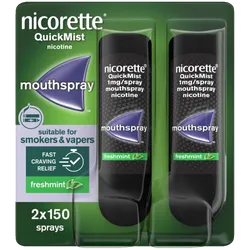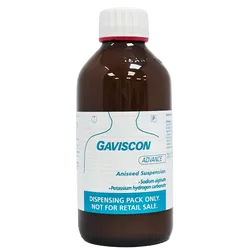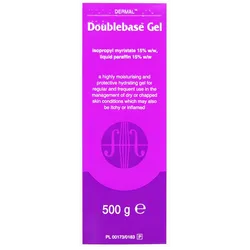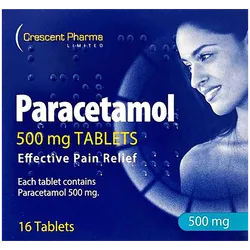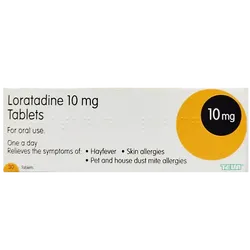The number of Nicorette Gums you use each day will depend on how many cigarettes you smoked and how strong they are.n The 2 mg gums should be used by people who smoke 20 or fewer cigarettes each day or by heavier smokers when they are cutting down the number and strength of the Nicorette gums they are using.
The 4 mg gums should be used by people who smoke more than 20 cigarettes per day.
Children under 12 years
Do not give this product to children under 12 years.
Adults and Children 12 years and over:
If you usually smoke 20 cigarettes or fewer per day, use one 2mg gum as required to relieve cravings.
If you usually smoke 20 cigarettes or more per day, use one 4mg gum as required to relieve cravings.
Use only one piece of gum at a time.
Most people use between 8 to 12 gums per day.
Do not use more than 15 gums per day.
Children aged 12 up to 18 years should not use for longer than 12 weeks without asking for help and advice from a doctor, nurse or pharmacist.
Adults aged 18 years and over should not use for longer than 9 months without asking for help and advice from a doctor, nurse or pharmacist.
How to chew Nicorette Gum – the Nicorette Chewing Technique
The method of chewing Nicorette Gum is not the same as for ordinary chewing gum. Nicorette Gum is chewed to release nicotine then rested so that nicotine can be taken in through the lining of the mouth. If Nicorette Gum is chewed continuously, the nicotine is released too quickly and is swallowed. This may irritate your throat, upset your stomach or give you hiccups.
If you have false teeth you may have difficulty chewing the gum as Nicorette Gum could stick to them and on rare occasions, damage dentures. If you experience a problem, other types of nicotine replacement therapy such as a skin patch, inhalator or microtab may be more suitable for you.
The Nicorette Chewing Technique
1. Chew slowly until taste becomes strong.
2. Rest between gum and cheek.
3. Chew again when the taste has faded.
4. Keep chewing like this for about half an hour.
After this time the gum will have lost its strength and you should dispose of it carefully.
How to stop smoking: your choice
Because smoking is an addiction, you may find it difficult to give up. From time to time you may still have strong urges to smoke but if you follow these recommendations, you have a good chance of quitting.
Some people may find it easier to set a quit date and stop smoking immediately.
Others who are unable or not ready to stop smoking abruptly, may benefit from gradually reducing the number of cigarettes they smoke each day until they feel able to stop completely.
If you are an adult you can follow either one of these options. However children should follow the guide to stopping immediately as the recommended duration of nicotine replacement therapy in children is 12 weeks maximum. The only time children should stop gradually is if they are having a problem stopping immediately and they should talk to their doctor, nurse or pharmacist beforehand.
If you find it hard to stop smoking using Nicorette Gums, you are worried that you will start smoking again without them or you find it difficult to reduce the number of Nicorette Gums you are using, talk to your doctor, nurse or pharmacist.
Remember Nicorette Gums are not intended as a substitute for smoking, they are an aid to give up.
Use one of the two options which follows:
Stopping Immediately
The idea is to stop smoking immediately and use the gum to relieve the cravings to smoke. After achieving this you then stop using the gums.
There is a difference in how you stop depending on whether you are aged 12 – 18 years or are 18 years or over. Make sure that you follow the instructions for the age range applicable for you.
Adults aged 18 years and over
Step 1: Set a date to quit and stop smoking cigarettes.
Step 2: Use the gum for up to 12 weeks (3 months) to relieve your cravings to smoke.
Step 3: Start to reduce the number of gums you use. You should try to use fewer pieces of gum each day. When you are using only one or two pieces per day, you should stop completely.
➤ For those using the 4 mg Nicorette gum, the use of 2 mg gums may be helpful when withdrawing from treatment.
➤ If you need to use the product for longer than 9 months, ask your doctor, nurse or pharmacist for advice.
➤ You might feel a sudden craving to smoke long after you have given up smoking and stopped using Nicorette Gum. Remember you can use nicotine replacement therapy again if this should happen.
Children aged 12 years and over
Step 1: Set a date to quit and stop smoking cigarettes.
Step 2: Use the gum for 8 weeks (2 months) to relieve your cravings to smoke.
Step 3: Reduce the number of gums you use over a period of 4 weeks. You should try to use fewer pieces of gum each day. When you are using only one or two pieces per day, you should stop completely.
➤ For those using the 4mg Nicorette gum, the use of 2 mg gums may be helpful when withdrawing from treatment.
➤ Do not use for longer than 12 weeks in total without asking for help and advice from your doctor, nurse or pharmacist.
Stopping Gradually
The idea is to start by gradually replacing some of your cigarettes with the gum. After achieving this you then give up cigarettes completely while using the gum. Finally, you give up using the gum.
Adults aged 18 years and over
Step 1: Work out how many cigarettes you smoke per day. Set a date to start reducing the number of cigarettes you smoke.
Step 2: Start reducing. Over the next few months, reduce the number of cigarettes you smoke by using Nicorette Gum when you feel the urge to smoke, until you feel ready to stop completely.
➤ For those using the 4 mg Nicorette gum, the use of 2 mg gums may be helpful when withdrawing from treatment.
➤ If after 6 weeks you have not reduced the number of cigarettes you smoke, ask your doctor, nurse or pharmacist for advice.
➤ You should aim to stop smoking completely by six months from the beginning of treatment.
Step 3: Stop smoking. Cut out all cigarettes and continue using the gum for up to 3 months to relieve your cravings to smoke.
Step 4: Start reducing the use of the gum. You should try to use fewer pieces of gum each day. When you are using only one or two pieces per day, you should stop completely.
➤ If you need to use the product for longer than 9 months, ask your doctor, nurse or pharmacist for advice.
Children aged 12 years and over
Children should follow the guide to stopping immediately. The recommended duration of nicotine replacement therapy in children is 12 weeks maximum. The only time children should stop gradually is if they are having a problem stopping immediately.
Talk to your doctor, nurse or pharmacist before attempting to stop gradually.
Patient Information Leaflet

